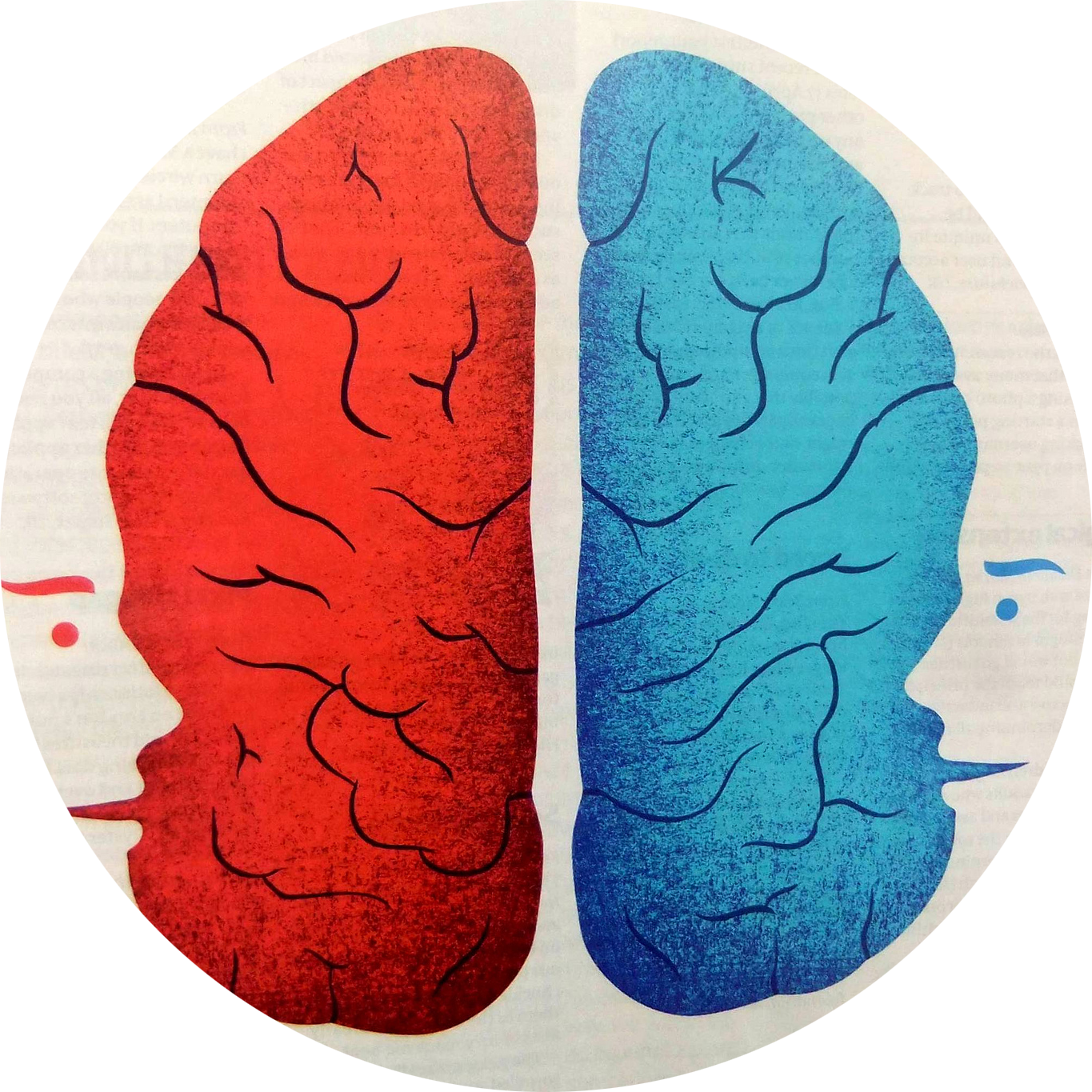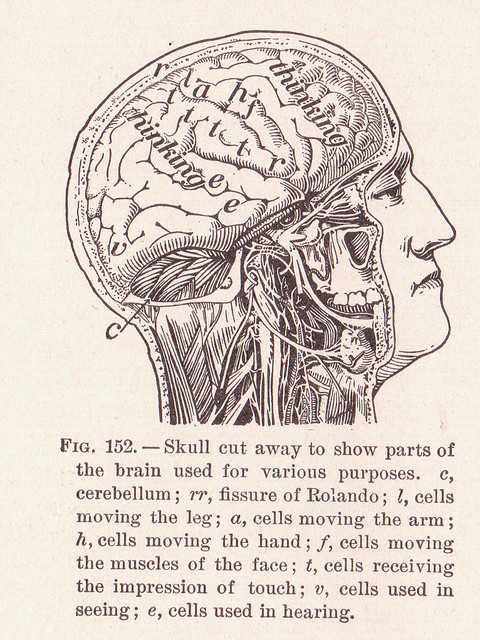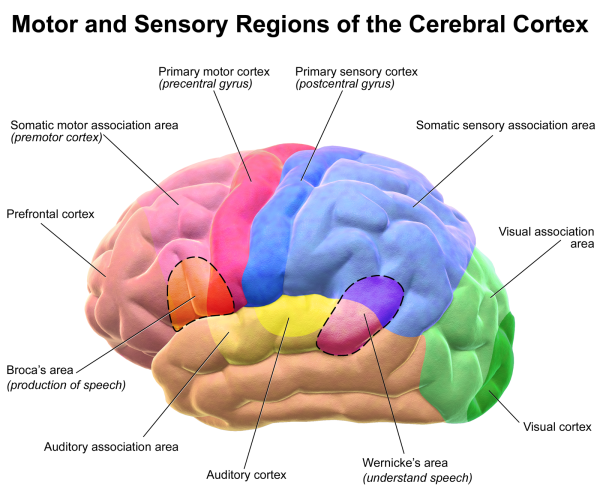The mechanics of learning French – how does it all work?
 Have you ever wondered what exactly goes on in our brains when we learn a new language?
Have you ever wondered what exactly goes on in our brains when we learn a new language?
At MyFrenchLife™, we definitely see the value in learning French as a foreign language. We see the value in being able to communicate with the locals in France, in avoiding touristy typecasts and in taking pleasure in our newfound confidence from trying daunting new challenges.
But have you ever stopped to think about the intellectual benefits of studying French? And is it possible that we encounter the same world differently depending on which language we speak?
Here we explore the long-term benefits gained from learning French, what exactly goes on in the brain when we learn it and how being bilingual can change your outlook on life.
Bilingual benefits
Last month The Atlantic published an article on how learning another language is the key to having a better brain.

Why is this so? Well, multilinguals are constantly exercising their memory. They are much more flexible and adaptable to tasks, so naturally they are also better multi-taskers. Think of how many times you need to make mental switches between French and your first language to decipher which expressions to use in particular contexts. Mon dieu !
The Atlantic also explains that learning a second or third language helps to improve your mother tongue, with enormous benefits. You are better equipped to focus on the finer details of language and to sift out the less important ones. Having an arsenal of new experiences in another language better equips you to resist persuasive media and advertisements and even to become a more self-aware shopper. In short, learning French will make you a better decision maker.
Given all these benefits, it begs the question: are bilingual brains built the same way as unilingual ones?
A closer look at learning French
For our brains to process language, the first step is for sounds to pass through our auditory cortex, located on both sides of the brain. That sound information then passes by the left hemisphere in Wernicke’s area, which is responsible for speech comprehension and nutting out words and phrases. Next, Broca’s area, also in the left hemisphere, takes care of speech production. So once you have made sense of the meaning in Wernicke’s area, Broca’s helps you to plan a response to the words you’ve just heard.
Finally, the motor cortex takes care of physically forming the sounds called phonemes with our mouth and lips, helping us to respond to speech. All this in milliseconds!
When bilinguals take in speech, their brains work hard to identify the correct language they’re hearing. Interestingly, bilinguals who have learnt a second language from childhood develop sub-areas in Broca for the separate languages. Over time they morph into one area. However, when a new language is acquired as an adult after the critical learning period, a separate area for the new language develops near Broca. What this means is that learning a new language sculpts out new areas of brain matter, which help to strengthen creativity, focus and decision-making skills.
Fresh approach
Another hotly debated argument is whether multilinguals perceive the world differently to those that speak one language. Do we see the world differently as an English speaker? Is our perception of everyday objects, meanings and feelings vastly different to that of a monolingual speaker?
The New York Times suggests that with new research brewing, it is quite likely that “when we learn our mother tongue, we do after all acquire certain habits of thought that shape our experience in significant and surprising ways.”
“We do after all acquire certain habits of thought that shape our experience in significant and surprising ways.”
The Atlantic quotes linguistics professor George Lakoff’s belief that speaking different languages gives you different frames, metaphors and cultural contexts.
So for those of us learning English as French-born speakers, do grammatical genders affect our perception of reality? Do other structures and words in one language influence how an individual sees the world?
There are examples floating about everywhere. After the uproar in the infamous language relativity theory made famous by the Sapir-Whorf hypothesis, psychologists were jumping at the chance to test out the brains of gendered language speakers. One such experiment was to get French and Spanish speakers to assign either male or female voices to objects in a cartoon such as a fork. Naturally the French speakers used a female voice for la forchette, whereas the Spanish used a male one for el tenedor.
Speaking French like a native

A pattern we’ve noticed is plenty of gastronomie pride, of course. So is cultural heritage the answer to the origins of these French equivalents? Do native French speakers view the world more deliciously than others?
And who could forget language-specific expressions? A handy French term l’esprit de l’escalier explains the concept of when one has thought of the perfect retort when it is just a moment too late. With ‘stairwell wit’ as the closest thing to a translation in English, learning other languages opens us up to new approaches and ways of interpreting meaning.
What do you think of the nuts and bolts of learning languages? Does your language shape the way you think?
Image Credits1. One brain, two minds via Flickr.
2. Our brain, via Flickr.
3. Brain, via Wikipedia.
4. Emotional by Shannon, via Flickr.








Fascinating article Julia!!
It’s so interesting that learning new languages literally makes new spaces in your brain to house them. And assigning genders to inanimate objects is something that’s always fascinated me. I wonder where that originated..
Thanks Ellen!
I’ve always wondered that too…
This is such an interesting article Julia- the different ways we view reality due to the language we employ has always interested me (Saussure’s idea of language, as a system of signs, constructing our world comes to mind), but the idea that learning different languages can prolong someone’s hold on reality and memory (someone who is going to suffer from Alzheimer’s) is fascinating, and somewhat comforting.
Thanks heaps Jill!
Ah yes, the signifiant and the signifié…
The world is your oyster, regardless of whether that’s la huître or el ostíon!
Dear Julia Greenhalf
Greetings from Pakistan, this is really amazing. I’m learning french from the last few months and i really experienced the mentioned points. French is an interesting language and i think its like a Mathematics. One need to calculate before speaking a sentence “C’est Sympa”. Bon Article, Merci
Abdul Wahab Latif,
Peshawar, Pakistan
Hi Abdul,
Thanks so much! I love your analogy – language learning really is like solving an equation, cracking the code of meaning.
Bonne continuation,
Julia